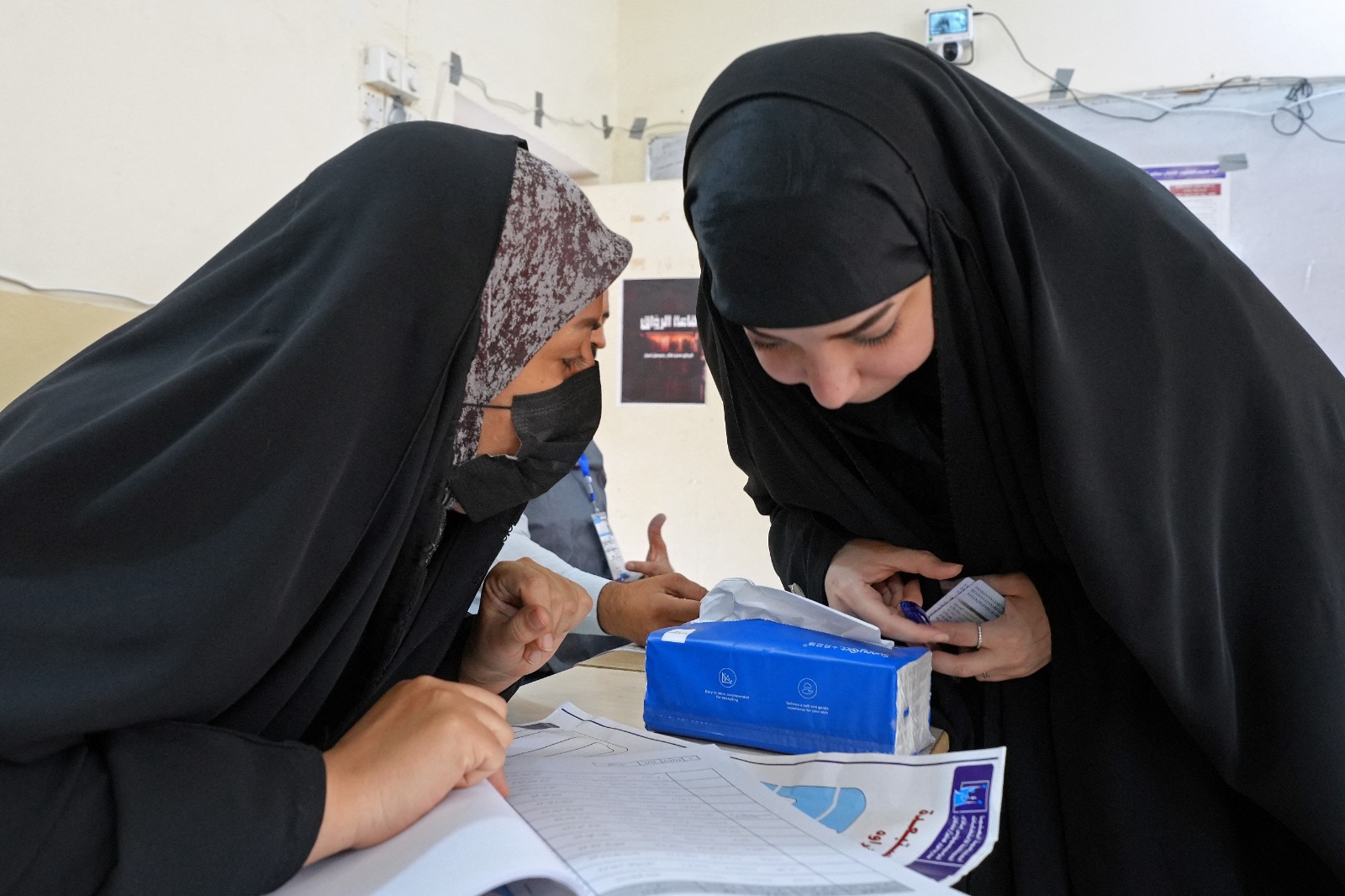IHEC to Announce Preliminary Results Within 24 Hours, Confirms Smooth Voting Nationwide
“The Commission will not hesitate to take firm action against any breaches, including disqualifying candidates found violating election rules,” Jumana Ghalai warned.

ERBIL (Kurdistan24) — The Iraqi Independent High Electoral Commission (IHEC) confirmed on Tuesday that the parliamentary elections are proceeding smoothly across the country, with no major technical or security problems reported so far.
Speaking to Kurdistan24’s Dilan Barzan in Baghdad, Jumana Ghalai, the IHEC spokesperson, said the voting process in all Iraqi cities and towns has been “running efficiently and transparently.”
She noted that polling stations opened at 7:00 a.m. and will remain open until 6:00 p.m., after which ballot boxes will be sealed.
“We have not received any reports of disturbances or malfunctions in Baghdad or other governorates,” she stated, adding that preliminary results will be announced within 24 hours after polls close.
Ghalai emphasized that the commission is maintaining continuous oversight throughout the voting period, including monitoring campaign violations and sanctioning offenders.
“The Commission will not hesitate to take firm action against any breaches, including disqualifying candidates found violating election rules,” she warned, underscoring Baghdad’s commitment to ensuring the integrity of the democratic process.
A Kurdistan24 correspondent in Baghdad reported that turnout levels vary across different areas of the capital. In Karkh, long lines of voters formed outside polling stations, while in Rusafa, the turnout appeared lower, with a noticeable decline in voter enthusiasm.
Election experts attribute this disparity partly to the boycott declared by supporters in Sadr City, one of Baghdad’s most populous districts, reflecting the broader political divisions and voter fatigue that have defined Iraq’s post-2003 political landscape.
Tuesday’s vote marks a pivotal moment for Iraq’s fragile democracy. More than 20 million citizens across Iraq and the Kurdistan Region are eligible to cast their ballots to elect 329 members to the Council of Representatives, including nine quota seats allocated to minority groups such as Christians, Ezidis, and Shabaks.
This is Iraq’s sixth parliamentary election since the 2003 U.S.-led Iraqi Operation Freedom that toppled Saddam Hussein’s regime and ushered in a complex multiparty system.
The vote comes amid deep public frustration with corruption, unemployment, and poor services in the capital, Baghdad, and other middle and southern Iraqi provinces—but also growing calls, particularly among younger Iraqis, for reform and accountability.
While concerns about low turnout persist, observers from both the United Nations Assistance Mission for Iraq (UNAMI) and domestic watchdogs have praised the calm and orderly nature of the day’s proceedings so far, describing it as a positive sign for Iraq’s democratic resilience.
As the polling day unfolds, the eyes of the nation—and much of the region—remain on Baghdad, awaiting the results that will shape Iraq’s next parliament and determine the direction of its political alliances for years to come.